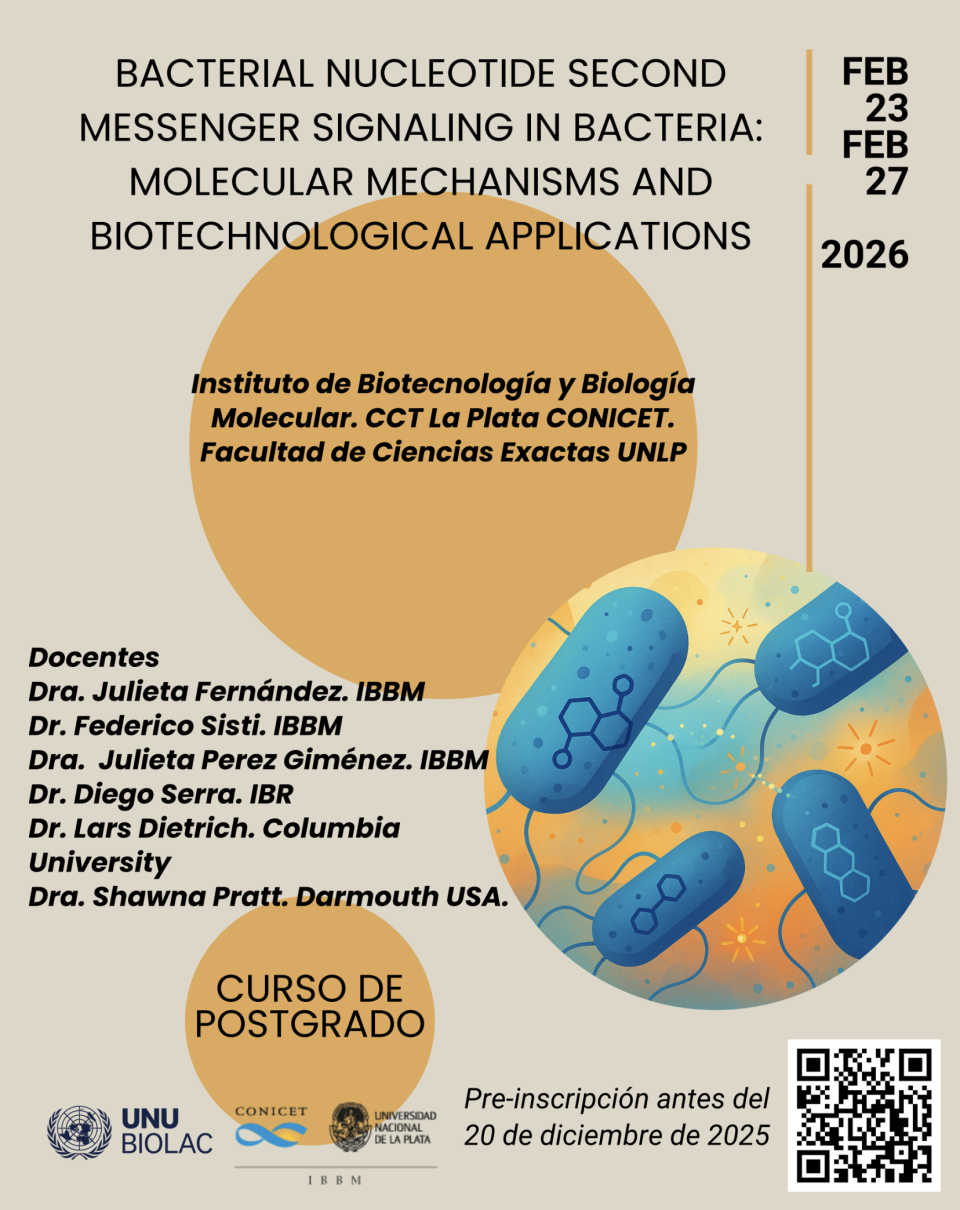We are pleased to announce the opening of enrollment for the UNU-BIOLAC training course titled:
“Bacterial Nucleotide Second Messengers: Molecular Mechanisms and Biotechnological Applications”
This course will be hosted by the Faculty of Exact Sciences at the National University of La Plata (UNLP), Argentina, and coordinated by Professors Julieta Fernández and Federico Sisti from the Institute of Biotechnology and Molecular Biology (IBBM-CONICET).
In recent years, bacterial nucleotide-based second messengers—such as cyclic di-GMP, cyclic AMP, and (p)ppGpp—have emerged as key regulators of microbial physiology. These molecules influence critical behaviors like biofilm formation, motility, virulence, and environmental adaptation. Their relevance spans both fundamental microbiology and applied biotechnology, offering promising avenues for antimicrobial development, synthetic biology, and industrial bioprocesses.
This course aims to empower early-career scientists with the theoretical and practical tools needed to explore and innovate in this dynamic field.
Objectives
- Provide a comprehensive overview of bacterial second messenger systems.
- Disseminate cutting-edge knowledge to researchers in microbiology and biotechnology.
- Foster interdisciplinary dialogue and collaboration.
- Promote regional and international networking among young scientists.
What to Expect
Participants will engage in a five-day immersive experience combining:
- Lectures on molecular mechanisms, regulatory networks, and physiological roles of second messengers.
- Hands-on laboratory sessions including:
- Biofilm formation and imaging
- Bacterial motility assays
- Macrocolony development and microscopy
- Protein–protein interaction studies using the BACTH system
- Group discussions and case studies
- Optional visits to research facilities at UNLP
All sessions will be conducted in Spanish or English, depending on the instructor and participants.
Target Audience
This course is designed for:
- Graduate students (MSc and PhD)
- Postdoctoral researchers
Early-career scientists in microbiology, molecular biology, biotechnology, or related fields
Application procedure
Applications will be received via this form (Google login required)
Last day to apply: December 20th, 2025.

